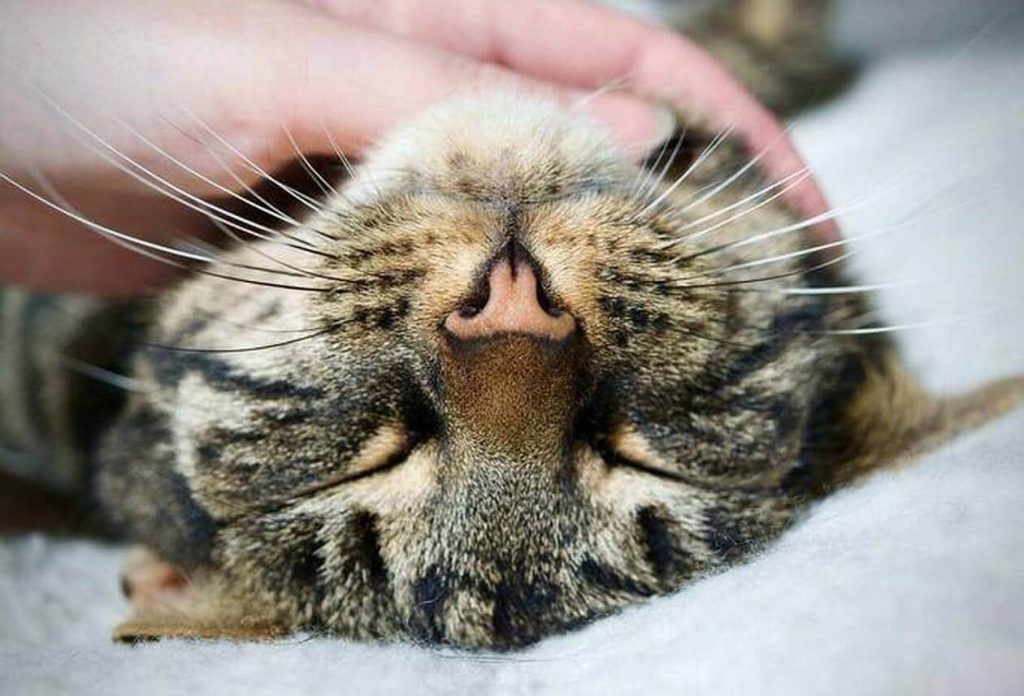How can you be sure that your cat really loves you? To find out, just watch his behavior. These four elements will allow you to determine if your domestic cat loves you, explains one scientist.
Even the most devoted cat owners wonder at some point, perhaps waking up sweaty in the middle of the night, if their cat really loves them. Those who prefer dogs claim that these animals have long been the best friends of humans. But research shows that cats’ reputation for being cool and kept is undeserved.
Because of their evolutionary history, domestic cats are, by nature, more independent than dogs. Their savage ancestors did not live in groups like canines. However, during the process of domestication, cats have developed the ability to socialize not only with other cats, but also with humans.
Read also: Is it healthy to sleep with your cat or dog?
While they do not depend on humans to feel as safe as dogs, many cats show affection towards their breeders and seem to enjoy their company. Their attachment to humans is influenced in part by their experiences as kittens.
Cats behave toward humans in the same way they behave toward their feline friends. Thus, to find out if your animal feels attached to you, it is enough to observe its behavior.
1. The issue of smells
The ability to communicate with other cats over long distances, and when not physically present, was an advantage for the wild feline ancestors. But pet cats have retained this “superior sense” and often use this type of communication: cats use scent specifically to identify members of their social group or family, who share the same olfactory profile.
They have scent glands on their sides, head, and around their ears, and they often rub their heads against familiar and comfortable people and things.
Does your cat rub its head or wing on your legs? Feeling soft on your calves is a sign that your cat considers you a friend and this is a huge compliment.
If a cat comes towards you with its tail raised, this is a good sign.
Read also: Learn to decipher your cat’s facial expressions
2. How are you welcomed?
The way your cat greets you is one of the most obvious signs of affection for you. When cats meet people from their social group, they send out signals that show their friendship and desire to get close. They do the same with humans.
An erect tail indicates a friendly intent (equivalent to a wave of cats), showing familiarity, trust and affection. Some cats put their tail in the form of a question mark to greet someone they love or to indicate their desire to play.
Cats sometimes tangle their tails as a sign of friendship, and the equivalent of this practice with humans is to wrap their tail around a calf.
Read also: a test. Do you know how to make your cat happy?
Rolling over on its back and exposing its weak belly is another gesture that shows the cat trusts you completely. However, cats prefer to be petted on the head and neck. Therefore, in this position, the cat generally does not want to scratch its stomach.
Attempts to pet a cat’s stomach often result in accelerated tucking or even scratching. A chirping or cooing is the melodious sound that cats make when they say hello to their favorite people. So, if your cat greets you like this, know that he is glad to see you.
When your cat hits you on the back of the knee, it can also be a sign that he feels a very strong bond with you. A diagonal version of the “head there,” gums are usually reserved for the closest feline friends and humans they trust the most.
Read also: But why does your cat always come to your computer when working remotely?
3. blinking
Your cat may be secretly indicating his affection to you by the way he looks at you. When cats encounter unfamiliar humans or kittens, they will usually greet them with their eyes wide open. But they are more likely to blink slowly in front of cats with whom they have a good relationship.
According to various researches, slow flashes are associated with a positive emotional state and can be a sign of trust, contentment, and affection, like a smile in humans. If you want to respond to compliments, close your eyes and your cat may respond in the same way. It’s a great way to bond with cats who don’t like being touched.
4. Reconciliations
Cats are very protective of their personal space and do not like intrusion by intruders. If a cat allows you to get close to her, it is likely a sign of a close bond, especially when contact is frequent or prolonged.
When a cat sits on your lap for a nap, she really trusts you.
Grooming is only done between cats in a warm relationship, so licking your hand or face can show affection, even if their tongue isn’t the best.
The original version of this article was published in Conversation.

“Music guru. Incurable web practitioner. Thinker. Lifelong zombie junkie. Tv buff. Typical organizer. Evil beer scholar.”









More Stories
Smoking promotes excess belly fat
UNIVERSE: What space is there for women in science?
Forestry and science